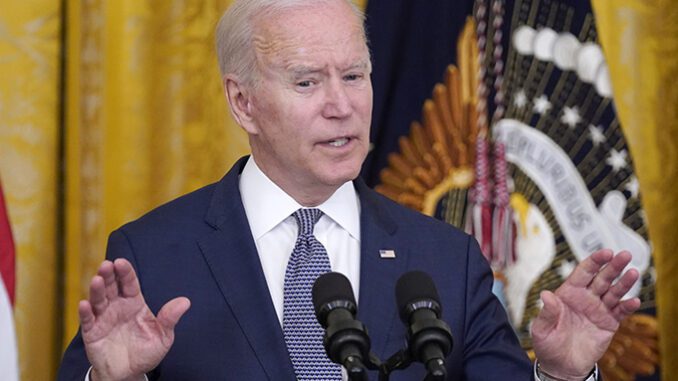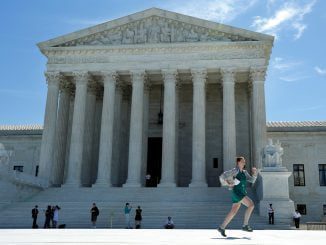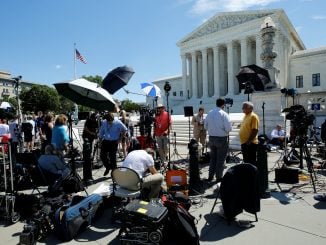
WASHINGTON, D.C. — The Supreme Court rejected the latest major Republican-led effort to kill the national health care law known as “Obamacare” last week.
The justices, by a 7-2 vote, left the entire Affordable Care Act intact in ruling that Texas, other GOP-led states and two individuals had no right to bring their lawsuit in federal court. The Biden administration cheered the ruling, saying 31 million people have health insurance because of the law.
The law’s major provisions include protections for people with existing health conditions, a range of no-cost preventive services, expansion of the Medicaid program that insures lower-income people and access to health insurance markets offering subsidized plans.
“The Affordable Care Act remains the law of the land,” President Joe Biden, said, celebrating the ruling. He called for building further on the law that was enacted in 2010 when he was vice president.
Also left in place is the law’s now-toothless requirement that people have health insurance or pay a penalty. Congress rendered that provision irrelevant in 2017 when it reduced the penalty to zero.
The elimination of the penalty had become the hook that Texas and other GOP-led states, as well as the Trump administration, used to attack the entire law. They argued that without the mandate, a pillar of the law when it was passed, the rest of the law should fall, too.
But the third major attack on the law at the Supreme Court ended the way the first two did, with a majority of the court rebuffing efforts to gut the law or get rid of it altogether.
Justice Stephen Breyer wrote for the court that the states and people who filed a federal lawsuit “have failed to show that they have standing to attack as unconstitutional the Act’s minimum essential coverage provision.”
In dissent, Alito wrote, “Today’s decision is the third installment in our epic Affordable Care Act trilogy, and it follows the same pattern as installments one and two. In all three episodes, with the Affordable Care Act facing a serious threat, the Court has pulled off an improbable rescue.” Alito was a dissenter in the two earlier cases in 2012 and 2015, as well.
Like Alito, Justice Clarence Thomas was in dissent in the two earlier cases, but he joined Thursday’s majority, writing, “Although this Court has erred twice before in cases involving the Affordable Care Act, it does not err today.”
Because it dismissed the case for the plaintiff’s lack of legal standing — the ability to sue — the court didn’t actually rule on whether the individual mandate is unconstitutional now that there is no penalty for forgoing insurance. Lower courts had struck down the mandate, in rulings that were wiped away by the Supreme Court decision.
Chief Justice John Roberts said during arguments in November that it seemed the law’s foes were asking the court to do work best left to the political branches of government.
The court’s decision preserves benefits that have become part of the fabric of the nation’s health care system.
The health law is now undergoing an expansion under Biden, who sees it as the foundation for moving the U.S. to so-called “coverage for all.”
His giant COVID-19 relief bill significantly increased subsidies for private health plans offered through the ACA’s insurance markets, while also dangling higher federal payments before the dozen states that have declined the law’s Medicaid expansion. About 1.2 million people have signed up with HealthCare.gov since Biden reopened enrollment amid high levels of COVID cases earlier this year.
Most of the people with insurance because of the law have it through Medicaid expansion or the health insurance markets that offer subsidized private plans. But its most popular benefit is protection for people with preexisting medical conditions. They cannot be turned down for coverage on account of health problems, or charged a higher premium. While those covered under employer plans already had such protections, “Obamacare” guaranteed them for people buying individual policies.




